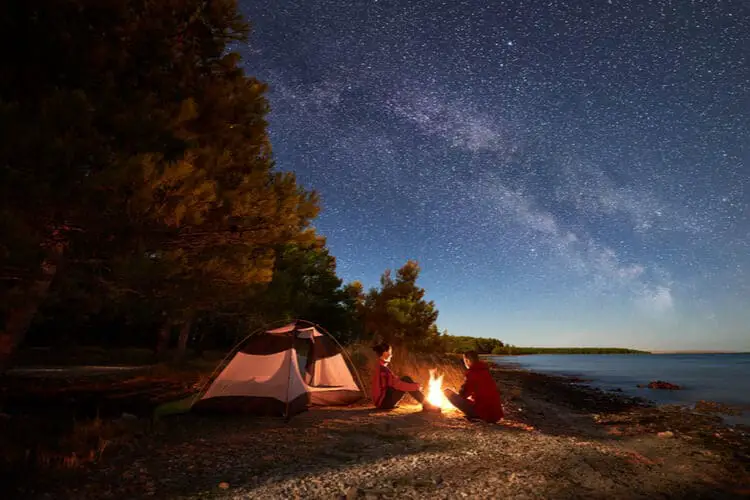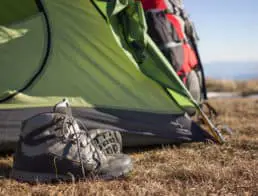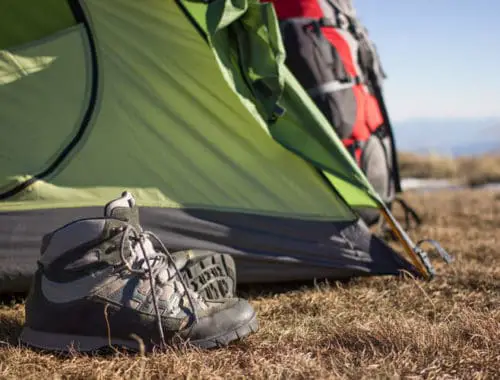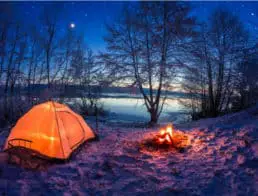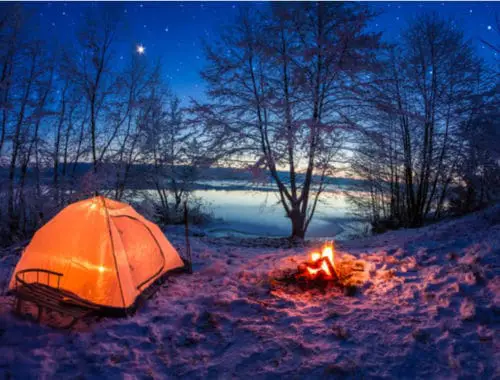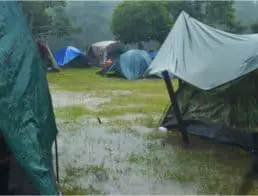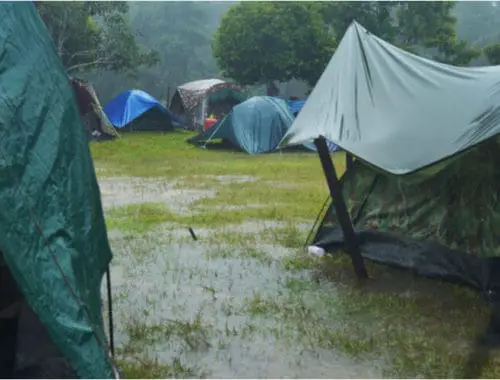More and more people across the globe are becoming campers. In many ways, the COVID-19 pandemic has made spending time outside more enjoyable and practical, but it’s also fostered a newfound appreciation for outdoor activities across the spectrum, from mountain biking to rock climbing to camping.1 If you’re among the many Americans heading out camping for the first time this year, whether because you’ve discovered outdoor recreation as a way to enjoy yourself while staying safe from the novel coronavirus or you’ve simply caught a bug for the great outdoors, it’s worthwhile to do your research and be prepared.2 Even the most modest and mellow of camping trips can go south without proper planning. With that in mind, here are three important tips for first-time campers.
Pack for the Weather
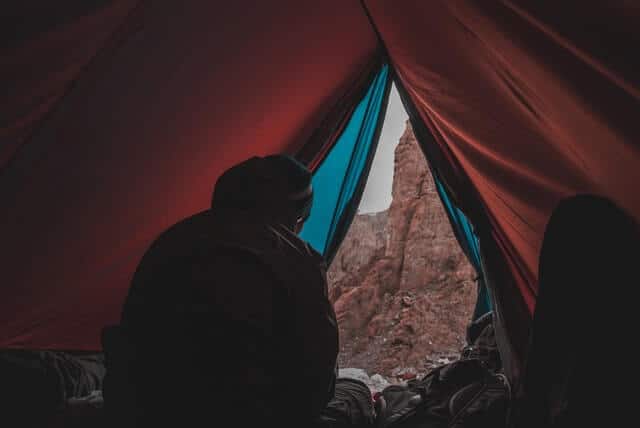
Image courtesy of Unsplash
The first mistake people commonly make when camping is not bringing the right clothing. While it is possible to be too hot when camping, I see novice campers underestimating the cold far more often. Even on summer campouts, nights can get quite cold, particularly at higher elevation locales in places like Colorado and California. Summer campouts in many parts of the Rockies or the Sierra Nevada, for example, will almost always be fairly cold at night, even in mid-July. The same is true of high desert regions in the Southwest.
Staying warm when camping all comes down to proper planning. Make sure you have a sleeping bag that’s rated for the temperatures you expect to encounter, if not a bit lower, and if you have the luxury of having a stationary base camp, make sure you’re bringing the best camping blankets along with you for extra warmth. Remember, you can always strip off layers if you’re too hot, but you can’t put on any extra layers you don’t have.
Camping blankets, in particular, are a personal favorite of mine, because they’re incredibly versatile. You can use your blanket to stay warm inside and outside your tent, of course, but you can also use it as a picnic blanket, an awning for shade, or even a towel, depending on the blanket material.
In the same vein, no matter what the forecast says you should always, always bring some form of rain gear, whether a poncho or a rain jacket and always bring a waterproof pack cover if you’re backpacking. Most rain gear is lightweight and easily packable, so even if the forecast is showing sunny skies, it doesn’t hurt to throw a poncho in your bag just in case.
Don’t Skimp on Food and Water
Everyone knows that the best meals you’ll ever eat are out in the backcountry. That’s not necessarily because the food is good (in fact, quite the opposite). It’s because when you’re out camping and hiking, you’ve been burning calories all day and have worked up a ravenous appetite.3 This makes even the blandest dehydrated food taste like a gourmet meal.
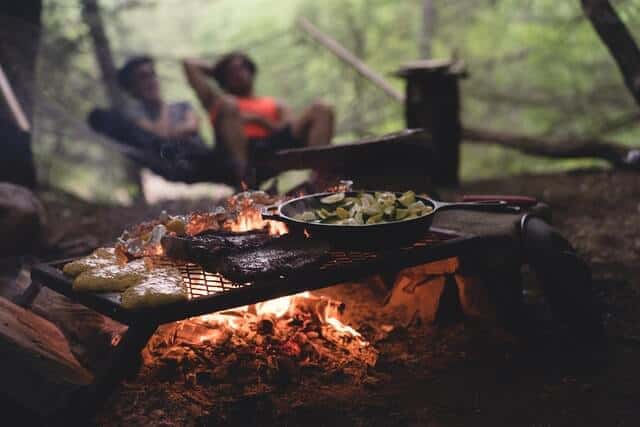
Image courtesy of Unsplash
With that in mind, remember that you can almost never have too much food or drink when camping, particularly if you’re car camping or otherwise not having to pack in your gear with you. Bring beef jerky, bring trail mix, bring chips, bring protein bars, bring the whole kit and caboodle. Worst case scenario you don’t eat all your food, what’s the downside? Maybe you get full and someone else in your party eats it. Failing that you can always just take the food home with you.
When backpacking (i.e. packing all your gear on your back and moving camp each night) take this recommendation with a grain of salt, because weight does matter, but believe me when I say you’ll be glad you have the extra calories when you stop for camp at night after a long day of hiking. If you’re simply packing too much water, you can always pour the extra water out, too. On that note, remember to pack at least two to three liters of drinking water each day, per person.
Practice Makes Perfect
The Boy Scout motto is “Be Prepared” for a reason. In the outdoors, you want to be prepared for any situation. Mentioning this as the third tip might sound like a redundancy, because the other two tips are both methods of being prepared, too, but in this sense I mean “prepared” as in “prepared with proper knowledge.” Remember, practice makes perfect.
If you just bought a new tent and are planning to use it on a three-day trip in the Rockies this weekend, make sure you know how to set the tent up first. If you just bought a water filtration pump, make sure you’ve tested it out at home in the sink or bathtub before you take it camping with you and are relying on it to provide you with clean water. If you’ve just bought new hiking boots, make sure you’ve broken them in before you take them on a fifteen-mile hike (blisters are no fun!).
Don’t ever let a camping trip be the first time you’ve tried out a piece of gear or apparel. Whatever it is, you can almost always test it out at home and learn how to use it first.
Conclusion
There’s a lot to learn about camping and far more information than can fit in any one article. That said, for basic camping trips, the best way to learn is to get out there and learn from experience.
Remember to pack for the weather, and go one step further and exercise a degree of caution where that’s concerned. I always recommend packing for temps slightly colder than you think you might encounter, and always packing a bit of rain gear, even if the forecast is clear. Don’t skimp on food and water. Always bring a bit more food and drink than you think you might need, particularly where water is concerned. Finally, remember that practice makes perfect.
Article Sources
Adventure Daily uses only high-quality sources, including peer-reviewed studies, to support the facts within our articles. Read our editorial process to learn more about how we fact-check and keep our content accurate, reliable, and trustworthy.
- Craig CA. Camping, glamping, and coronavirus in the United States [published online ahead of print, 2020 Oct 15]. Ann Tour Res. 2020;103071. doi:10.1016/j.annals.2020.103071.
- Brode N. 15% of Americans Plan to Hike More Than Usual Due to COVID-19. civicscience.com. Published 30 Mar 2020. Accessed 9 Nov 2021.
- Clark S. Camping Calorie Burn: A Closer Look at the Top Fat Burners While on Holiday. fitday.com. Accessed 9 Nov 2021.
